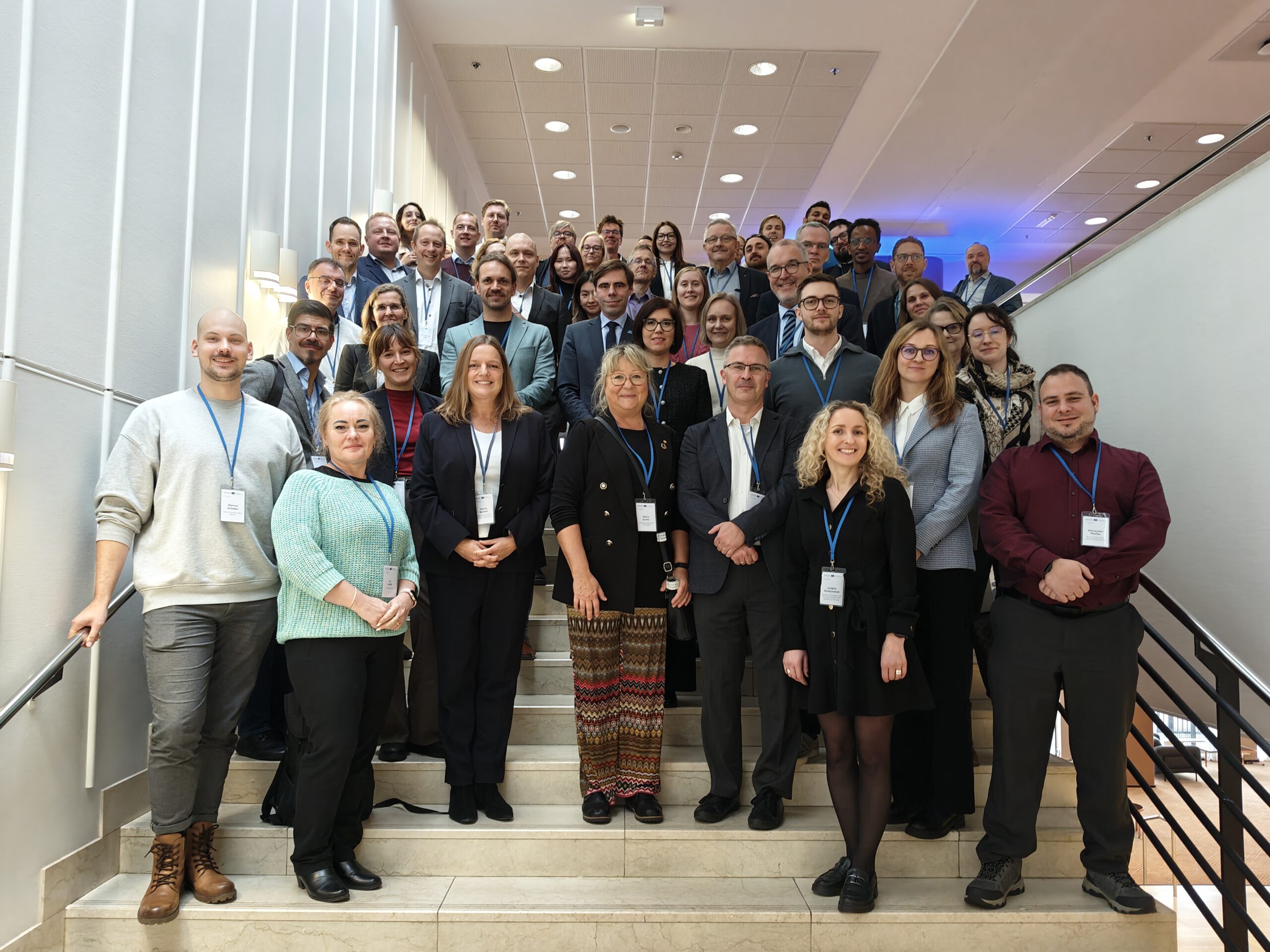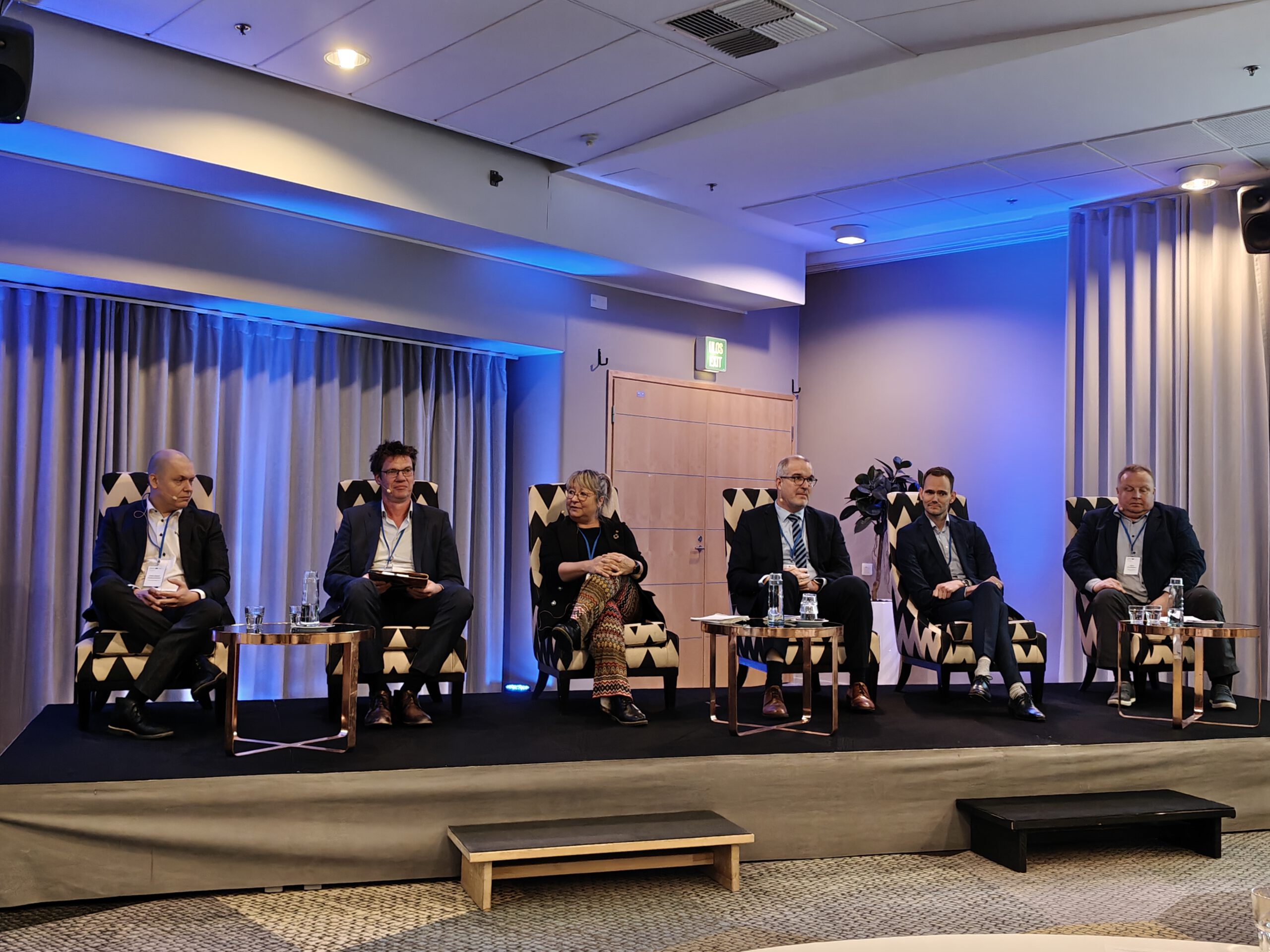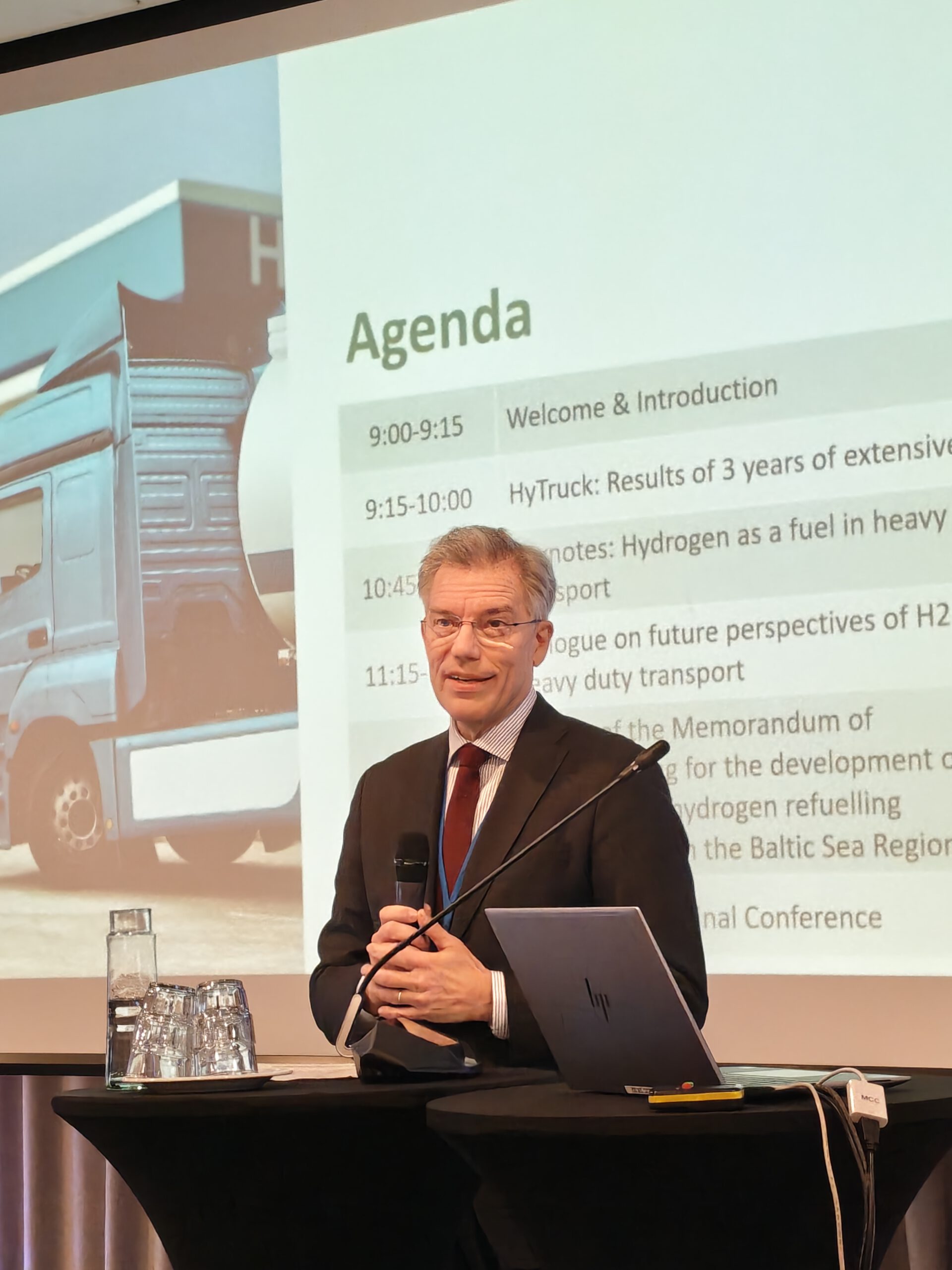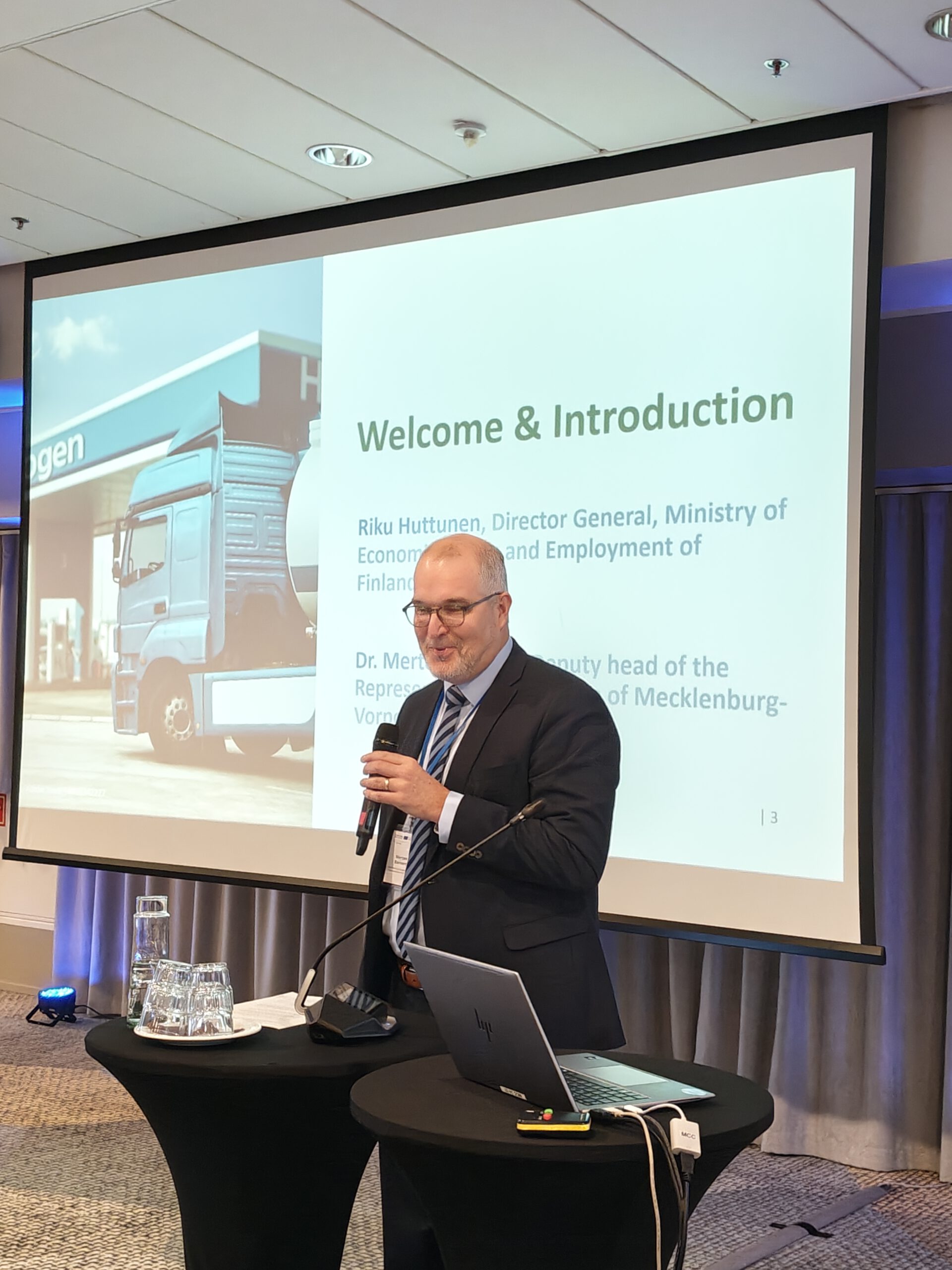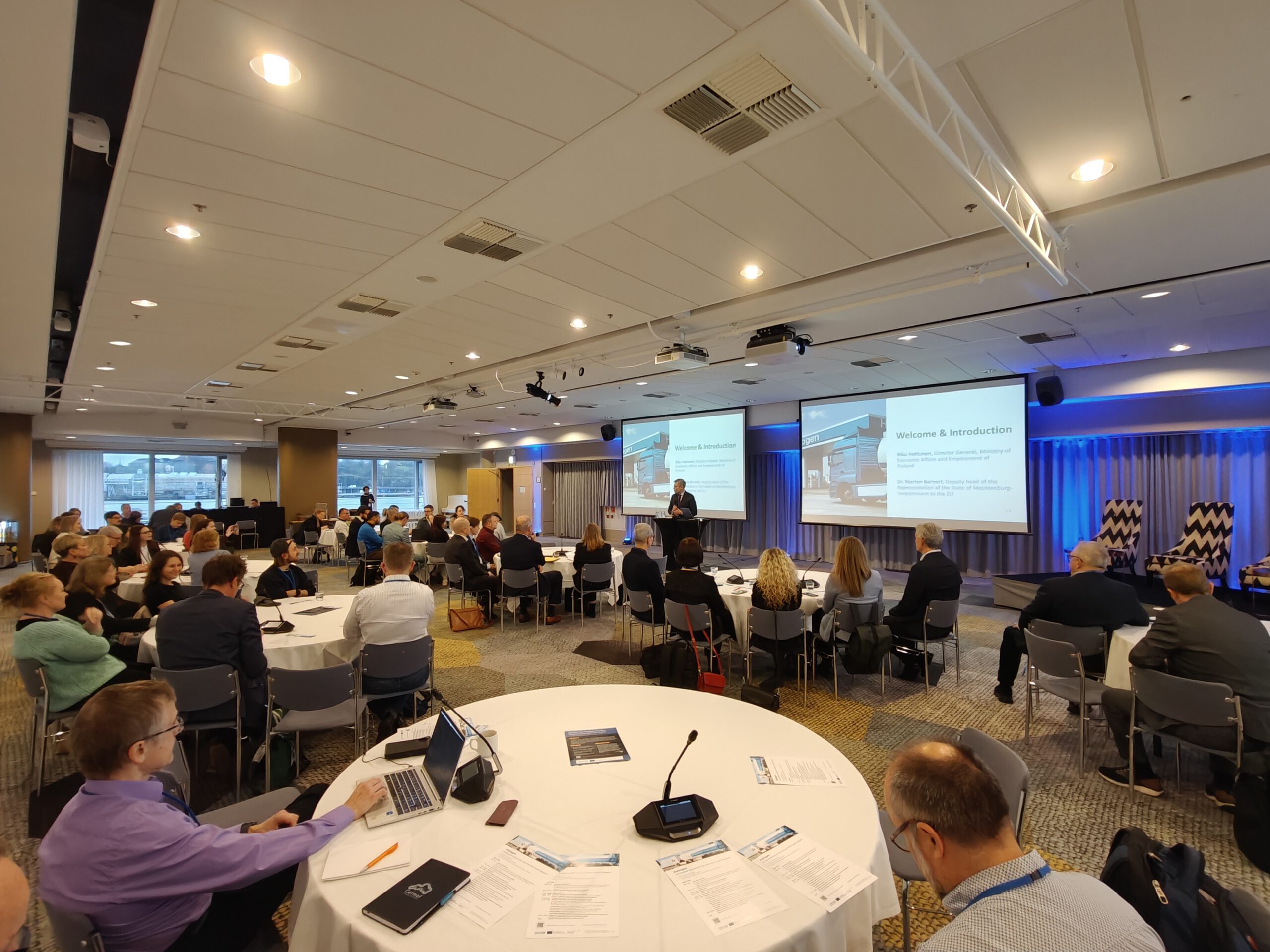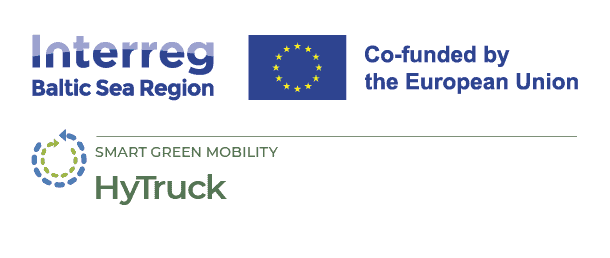
Strong commitment to a transnational hydrogen network in the Baltic Sea Region
18 November 2025
Helsinki welcomes HyTruck partners with excellent research infrastructure
One day before the HyTruck Final Conference, HyTruck partners and guests took the opportunity to visit the Aalto University Hydrogen Innovation Centre and VTT Technical Research Center. At the Aalto University Hydrogen Innovation Centre they were presented the vast scope of research in the field of hydrogen applications like materials research, electrolyser development or hydrogen combustion. When visiting the laboratories of the VTT Technical Research Center, participants could have a look into an electrolyser as well as a fuel cell engine designed to propel ships.
Final Conference: A Shared Vision for Hydrogen Mobility
On the following day, the HyTruck Final Conference gathered policymakers, researchers, industry representatives and regional authorities from across the Baltic Sea Region.
In their opening remarks, Riku Huttunen, Director General of the Energy Department in the Ministry of Economic Affairs and Employment, and Dr. Merten Barnert, Deputy head of the Representation of the State of Mecklenburg-Vorpommern to the EU highlighted Europe’s favourable energy market conditions and Finland’s strong reliance on fossil-free energy. Both emphasised hydrogen’s crucial role in decarbonising heavy-duty transport.
HyTruck partners presented the key results of their three-year collaboration: tools, pilots and recommendations. These include the Spatial Planning Toolkit to identify suitable locations for hydrogen refuelling stations, the Guideline for Planning HRS providing public authorities with step-by-step guidance for site selection, permitting and HRS design. A Catalogue of Technical Standards consolidates existing and emerging norms for heavy-duty hydrogen refuelling. Techno-economic analyses investigate cost-effective solutions for the production and distribution of green hydrogen to hydrogen re-fuelling stations. Five pilot regions developed regional spatial development concepts, identifying status quo, framework conditions as well as potential locations to build hydrogen refuelling infrastructure. The transnational spatial development concept for hydrogen re-fuelling stations in the Baltic Sea Region highlights the current deployment status, existing gaps and the need for coordinated, AFIR-aligned infrastructure expansion across borders at Baltic Sea Region level. The funding and policy recommendations stress the importance of public financial support, supportive regulatory environment and streamlined permitting for developing a viable hydrogen mobility market in the Baltic Sea Region. The One Stop Shop was showcased as a digital hub supporting planning, knowledge exchange and future marketplace functions.
A scientific and a European Perspective on hydrogen as a fuel in heavy-duty transport
In her video message, Valerie Bouillon-Delporte, Executive Director of Clean Hydrogen Partnership highlighted the progress made recently in and the advantages of hydrogen powered heavy-duty transport.
Fast re-fuelling, higher payload capacity and ranges up to 1.000 kilometres are a decisive advantage making hydrogen an inevitable part of decarbonising heavy-duty transport. OEMs are developing and increasingly also deploying hydrogen-powered vehicles.
In her keynote, Prof. Maria Grahn, Chalmers University of Technology, provided an evidence-based overview of hydrogen’s role in long-distance transport.
Presenting the results of current research done at Chalmers University of Technology on a Life-Cycle-Assessment of hydrogen powered heavy-duty transport, on an modelling the future role of hydrogen in freight transport from a global energy system perspective and on geospatial hydrogen demand in Europe, she concluded that:
- Decarbonisation of heavy-duty transport needs a mix of available zero-emission fuels including hydrogen as a very relevant element,
- battery electric solutions will dominate urban and short distance transport whereas hydrogen shows clear advantages for long-haul transport in the long run.
In a panel discussion moderated by Kalle Saarimaa, Carsten Beyer, NOW GmbH, Hendrik Sijtsma, Resato Hydrogen Technology, Girts Greiskalns, Latvian Hydrogen Association, Juho-Matti Uuksulainen, VIREON AS and Maria Grahn discussed future perspectives of hydrogen in heavy-duty transport.
They concluded that, despite having turned feets back to the ground after the initial hydrogen hype, hydrogen is essential for decarbonising heavy-duty transport.
The panellists agreed, that business cases bringing down total costs of ownership are needed. This can be tackled by simultaneous development of technology, incentives and economies of scale. It was very clear, that the transition to hydrogen in the transport sector comes with a cost and needs reliable political commitment beyond an electoral term. As very important, discussants considered the harmonisation of technical as well as legal framework and standards across the Baltic Sea Region and Europe. And of course, there must be more hydrogen-powered vehicles on the market to create offtake.
As main benefits from transition to hydrogen-powered heavy-duty transport, the participants mentioned fossil free heavy duty transport, European leadership in H2 technologies as well as
energy independence in an unfriendly geopolitical environment.
Signing a Transnational Commitment
The Conference concluded with the signing of the Memorandum of Understanding for the development of a transnational hydrogen refuelling infrastructure in the Baltic Sea Region. Representatives from all project partners expressed their commitment to continuing cooperation beyond HyTruck. Their statements highlighted the urgency of decarbonising transport, the need to overcome the current investment barriers, and the value of regional collaboration.
Looking Ahead
In his closing remarks, Dr. Merten Barnert emphasised the importance of maintaining momentum and continuing cross-border collaboration and thanked all partners for their contributions. The groundwork laid by HyTruck—technical analyses, spatial planning, digital tools and political alliances—will support the Baltic Sea Region as it moves towards a hydrogen-based heavy duty transport future.






